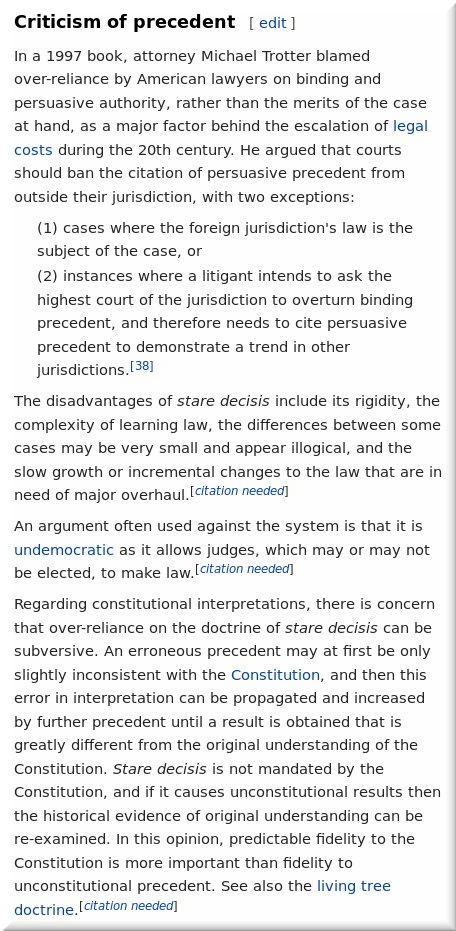

OVER the past week we have composed not one but two articles about how the USPTO distorts patent law [1, 2]. We showed examples of USPTO bias when it comes to software patents, which are a source of USPTO revenue (at everyone else's expense). The bias is showing, as even post-Alice the USPTO cherry-picks cases about software patents, trying to re-enable them. Reed Smith LLP, i.e. patent lawyers, is reaffirming what we wrote [1, 2] and so do people from the "The Software Intellectual Property Report" (Bejin Bieneman plc). Another firm of lawyers, Burns & Levinson LLP, is framing this as an "availability" problem, as if software patents are products. Where are the voices of reason in all this and why aren't actual developers consulted on these matters? Ricardo Ochoa of PretiFlaherty (patent lawyers) failed to even hide his bias on the subject. They all try to attract customers based on the misguided belief or hope that they'll manage to sneak software patents into the system, with help from an apathetic (about quality) USPTO. Where does this end? The most vocal longtime proponents of software patents even try using CAFC to broaden the appeal and scope of such patents. All of them rely on pretty much one single case which we mentioned here before, namely Enfish v Microsoft [1, 2, 3].
"Quite simply, being sincere and honest would not be convenient a strategy for people who make money ramming software patents down the USPTO's belly."Jason Rantanen, writing as a guest at Patently-O, deals with Enfish v Microsoft and In re TLI Communications. He is now comparing cases/studying CAFC to better understand how to get software patents granted in spite of the Alice decision.
"This month’s decision in Enfish," he writes, "was an overnight sensation—almost literally, as mere days later the PTO issued the new examiner guidance to implement the decision that Dennis wrote about last week. That guidance emphasizes the Federal Circuit’s recognition of Mayo Step-1 as a meaningful inquiry and focuses on particular aspects of Enfish that relate to that inquiry: comparisons to prior abstract idea determinations; a caution against operating at too high a level of abstraction of the claims, and the rejection of the tissue-paper argument that use of a computer automatically dooms the claim (it doesn’t)."
But actually, those two cases are just a couple among many more (even at CAFC alone), and the overwhelming majority of them were against software patents. Patent lawyers latch onto Enfish v Microsoft as opportunists with agenda and the public is barely told anything at all about this overwhelming majority of cases, which reaffirm the demise of software patents. One person, writing about another CAFC case, says: "This case is notable mainly because it is the first Federal Circuit decision to distinguish itself from Enfish LLC v. Microsoft Corp., and also because it is another reminder that the wall between patentable subject matter, obviousness, and written description is now rubble."
But why only rely on the latest two cases to discern/differentiate between patent-eligible and patent-ineligible? Why not rely on Alice and all the cases that cite it (probably many hundreds if not over a thousand)? Quite simply, being sincere and honest would not be convenient a strategy for people who make money ramming software patents down the USPTO's belly.
One new report, titled "Claims to Devices Sharing GPS Addresses Not Patent-Eligible in E.D. Texas", says:
Claims to Devices Sharing GPS Addresses Not Patent-Eligible in E.D. Texas
[...]
Judge Schroeder began by explaining that the magistrate judge was correct to decide the patent-eligibility question at the pleadings stage. The plaintiff had objected to the court’s refusal to consider its expert’s declarations, which were outside the pleadings. However, the magistrate properly relied on the plain language of the patent claims, and the plaintiff’s own description of the claimed subject matter. The expert’s declarations were not material to patent-eligibility and failed to provide adequate basis for their conclusions. Where “patent claims on their face are plainly directed to an abstract idea,” a dismissal at the pleadings stage was appropriate.
Moreover, Magistrate Judge Love properly “found that the ’503 Patent is directed toward the abstract idea of address retrieval.” The plaintiff argued that the magistrate judge had improperly used the “machine-or-transformation” test. Instead, Judge Schroeder explained, the magistrate judge had simply found that each of the problems the ’503 patent purported to solve “simply relate[s] to ease, accuracy, and efficiency benefits achieved when any fundamental or well-known concept is implemented on a computer device.”
Finally, addressing the second prong of the Alice/Mayo test, the claims recited no inventive concept. The plaintiff had essentially argued that “that the ‘503 Patent is inventive because it requires specialized hardware and software, and is limited to a specific type of data.” However, as the magistrate judge found, “a GPS device performing generic computer tasks does not transform the claims into patent-eligible subject matter.”